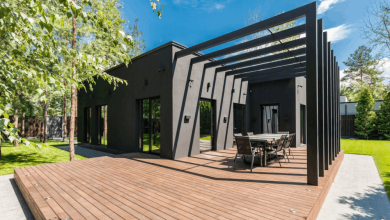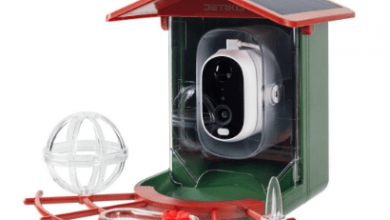Top 5 Power Backup Solutions for Home During Power Outage & Emergencies

These days we use electricity for almost everything, from lights and Wi-Fi to charging phones and cooking. So, when it suddenly goes away, even for a short while, everything seems to stop. That’s when the importance of power backup becomes clear.
Outages are not rare anymore. Sometimes it’s the weather, or system fails and sometimes it’s just scheduled maintenance that drags on too long. No matter the reason, it helps to be ready. Backup power is not just for convenience anymore. It brings peace of mind.
Let’s take a closer look at five simple and effective backup power options for everyday use. These don’t need to be complicated. You just have to pick what suits your needs and space.
1. Portable Generators
There is something simple about portable generators. You fuel them up, start them, and they run. In many households, they are the first backup option people think of. Whether it’s a fridge you want to keep running or some lights and fans, portable generators can handle basic needs.
They come in different sizes and fuel types. Some gen run on gasoline others on propane, and Dual-fuel generators give more flexibility. The newer ones are getting smarter too, with better noise control and easier start options.
The one thing to keep in mind is power capacity. Not every generator can run every appliance at once. You might want to check what your total usage looks like. A simple online wattage calculator can help with that. It saves time and money in the long run.
2. Inverter Generators
Life has moved forward and so have generators. Inverter generators are a quiet upgrade to the classic ones. They use technology to match power output to your needs. So, if you’re running just a light and phone charger, the engine slows down. That means less fuel is used and less noise is made.
They’re perfect for people living in small spaces or for situations where silence matters. like late nights or crowded neighborhoods. Inverter generators are also safe for gadgets like laptops, TVs and routers.
The price might be higher than regular portable generators, but for people who want comfort with stability, inverter generators make a strong case.
3. UPS (Uninterruptible Power Supply)
UPS systems are easy to overlook, but they serve a strong purpose. You won’t run a microwave on a UPS, but you can keep your internet on, or give your computer enough time to save your work.
Think of it as a cushion between your devices and a sudden blackout. The switch is instant. There’s no noise. No fumes. Just quiet backup power for your smaller essentials.
It’s true that UPS systems are limited in size and duration. But for people who work from home or need uninterrupted internet, even a small UPS can make all the difference.
4. Solar Backup Systems
Solar panels used to be expensive and rare. Not anymore. Solar power is becoming a steady choice for those thinking ahead. With a few panels, a battery, and an inverter, you can store power during the day and use it when the grid goes down.
It’s not just about saving money on bills. Solar backup is quiet, clean and requires little attention once installed. For people who live in sunny regions, it can be a long-term backup that works silently in the background.
Of course, the starting cost is still high for some. But if you see it as an investment for the next 10+ years, it’s worth considering.
5. Portable Battery Backup Stations
These are new for many people. Portable battery stations are like big power banks with sockets. You charge them in advance and when the power goes, you can plug in lights, phones, even small appliances.
Some models can be charged with solar panels. They’re silent, safe to use indoors and have no moving parts. You don’t need to worry about oil or fuel.
They may not run your full home, but they can keep your essentials working, which is often enough during short blackouts. For those who don’t want to deal with fuel or noise, these stations are a clean alternative.
Which Option Makes Sense for You?
Every home is different. Some people just want to charge their phone and stay connected. Others need to keep their fridge and lights on. And then there are those who want long-term peace of mind with clean, low-maintenance options.
That’s why backup power isn’t a one-size solution. It’s more of a question:
- Do you want something portable or fixed?
- Do you have a place to run a fuel-based generator?
- How long do you expect to go without power?
- What devices do you really need to run during an outage?
The answers help narrow down your options.
A simple way to begin is by making a short list of what you’d need during a blackout. Like, lights, fans, chargers, maybe a small fridge. Once you know your power demand, then using tools like a wattage calculator, mentioned above, can guide you to the right backup size.
Wrapping Up
We live in a time where electricity has become part of almost every daily activity. Losing it, even for an hour, feels uncomfortable. That’s why having some kind of backup solution is more than just a plan, it’s a necessity.
Whether you go with a basic generator, a solar setup, or a battery power station, the goal is the same, to keep life moving when the power stops.
Not everyone needs a big system. Sometimes even a small backup makes a big difference.
Take your time. Look at your space, your needs and your habits. A little preparation now can make things much easier later on.





